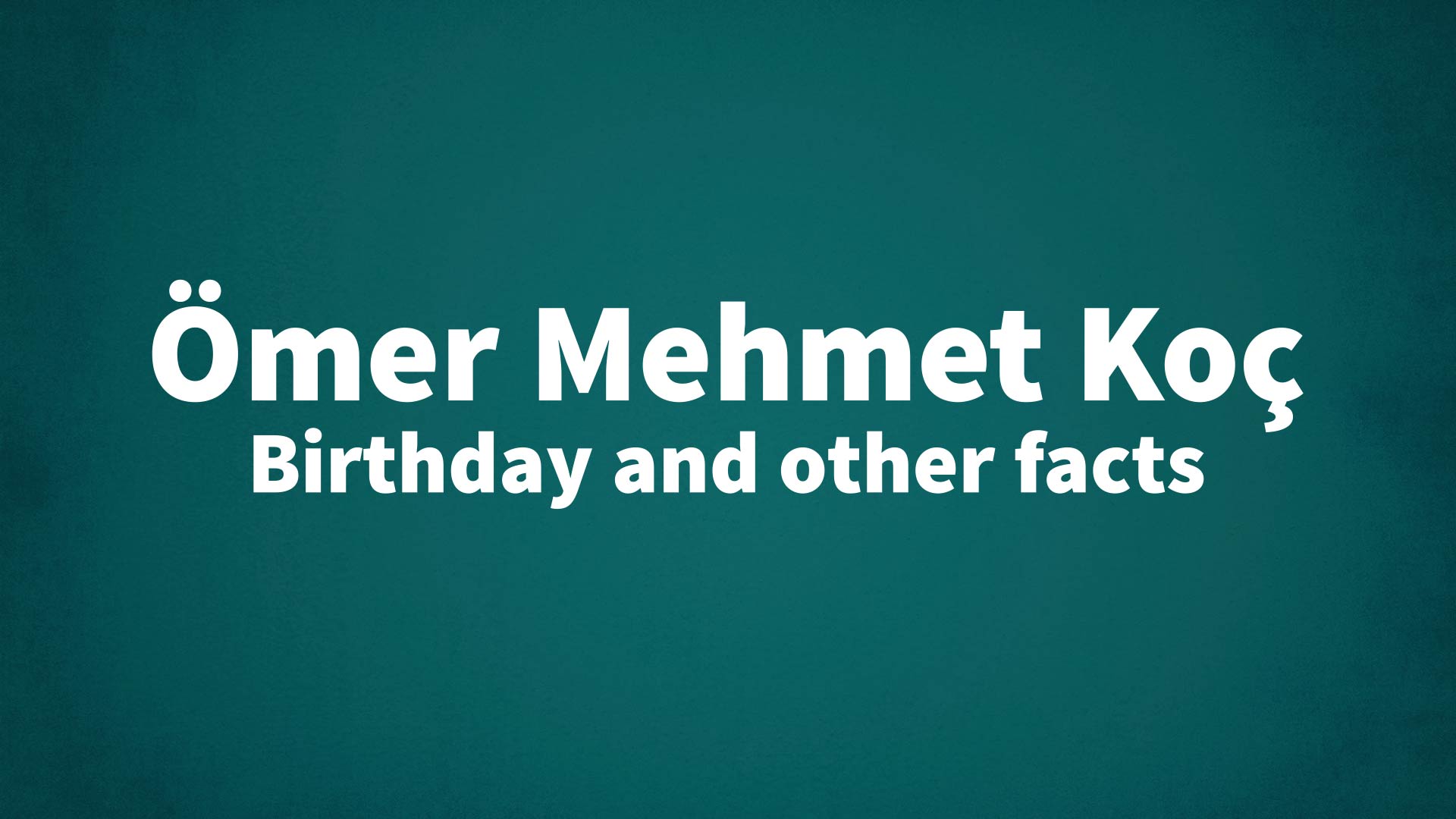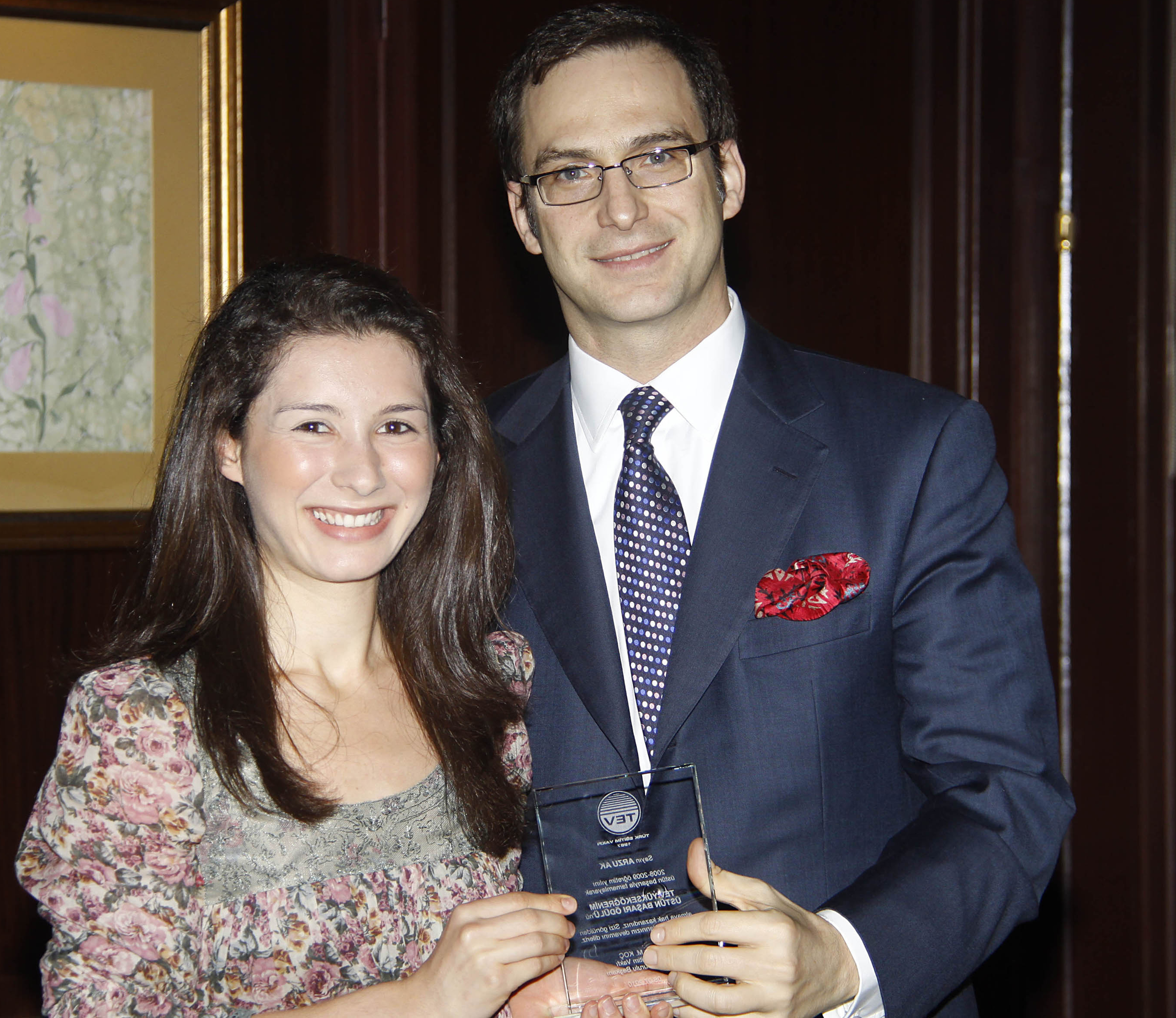Have you ever come across a name like "Omer Mehmet Koc" and felt a spark of curiosity about the individual or, perhaps, the history behind the words themselves? It's quite natural, actually. People often find themselves wondering about the stories that names carry, and sometimes, too it's almost, the very components of a name can lead us down paths of fascinating discovery. While we might be searching for details about a specific person when we see "Omer Mehmet Koc," the term "Omer" itself holds a deeply significant place in history and tradition, which is what we will explore today, given the information we have.
You see, the word "Omer" isn't just a part of a name; it carries a profound historical and spiritual weight, particularly within ancient traditions. It's a term that speaks of sustenance, of offerings, and of a period of deep spiritual counting. So, in some respects, when we consider "Omer Mehmet Koc," our focus turns to the ancient roots of that first word, "Omer," and the rich tapestry of meaning it brings.
This article will take a look at the concept of "Omer" as it appears in historical texts, giving us a clearer picture of its significance. We'll explore its meaning as a measurement, a daily provision, and a period of spiritual observance. It's quite a journey through time, really, and it helps us appreciate the depth behind seemingly simple words. This information, you know, comes directly from historical references concerning the term "Omer" itself, providing a solid foundation for our discussion right now, this very moment, on this current date.
Table of Contents
- What is the "Omer" in "Omer Mehmet Koc"?
- The Significance of Counting the Omer Today
- Omer Mehmet Koc: Personal Details & Biography
- Frequently Asked Questions About the Omer
- Conclusion
What is the "Omer" in "Omer Mehmet Koc"?
When people search for "Omer Mehmet Koc," they are often seeking details about an individual. However, the term "Omer" itself, quite separately, has a very rich history, especially in ancient contexts. It refers to an ancient Hebrew unit of dry capacity, which is roughly equivalent to 1/10 of an ephah, or about 43 ounces. This measurement, you know, pops up in some truly significant stories from long ago, giving us a peek into daily life and spiritual practices of old.
It's important to understand that the information we are looking at today, about the word "Omer," comes from historical texts and traditions. It's a term that, in its original context, had very specific uses and meanings that are quite distinct from its appearance in a modern name. So, basically, we're exploring the historical and cultural background of the word itself, which is pretty interesting, if you think about it.
An Ancient Measure of Sustenance
One of the most compelling stories involving the "Omer" comes from the biblical account of the manna. This episode describes a divine instruction for the Israelites to gather an omer for each person in their tent. This implies, quite clearly, that each person could eat an omer of manna a day. It was, in a way, a daily portion, a tangible sign of divine provision and ongoing sustenance for a people wandering in the wilderness. This daily measurement, you know, was just enough for one person, showing a very precise and consistent way of caring for everyone.
- What Is A Quote From The Book House Arrest
- Baggy Jeans Y2k
- Jakara Mitchel
- What Is The Psp Game Background Dimensions
- Things That Hit Other Things
The concept of the omer as a daily portion, rather, highlights a very practical aspect of ancient life, but also a deeply symbolic one. It wasn't just about food; it was about trust and reliance on a higher power for daily needs. This idea of a measured, daily provision is a powerful theme that resonates through many historical narratives. It truly underscores the importance of having just what you need, when you need it, and no more, which is a pretty simple but profound thought.
A Sacred Offering of Gratitude
Beyond being a daily measure, the omer also held a significant role in ancient religious practices, particularly in the context of the Feast of Weeks, also known as Shavuot. In ancient Israel, the first barley harvested was brought to the temple. These first fruits, collected in measures called omers, were presented as an offering. They were, in fact, an offering of deep gratitude and heartfelt thanksgiving for the harvest received. This practice, you know, linked the physical act of farming with spiritual acknowledgment.
On the very first day of the omer count, which is the second day of Passover, an omer of barley from the fresh crop was brought forward. This was called the omer, literally meaning a sheaf. It was a very practical and symbolic way for the Jewish people to acknowledge their blessings. This ancient tradition, you know, highlights a very important connection between the land, its bounty, and the people's spiritual life, showing a deep sense of appreciation for nature's gifts.
The Counting of the Omer: A Spiritual Journey
The "Omer" is also a period of 49 days, a very specific span of time between the Jewish holidays of Passover and Shavuot. It is considered a mitzvah, a commandment, to ritually count each day of this period. This practice, known in Hebrew as Sefirat Ha'Omer, is a very deliberate and meaningful spiritual exercise. It's a daily act of mindfulness, you know, a way to keep track of time with a higher purpose.
The counting of the omer serves as a crucial link between Passover and Shavuot. Passover celebrates the liberation from slavery, a truly momentous event. The omer count, then, reminds us of this liberation, and just how easy it is for us to slip back into various forms of personal or spiritual bondage. It's a period of preparation, really, a time to refine oneself and get ready for the giving of the Torah on Shavuot. So, in a way, it’s a journey from physical freedom to spiritual freedom, which is a pretty profound concept.
If someone happens to forget to count the omer at night, the tradition says they should count the following day, but without making the blessing. On subsequent nights, they can continue counting with the blessing as usual. The blessing is made only if every day has been counted, which shows the importance of consistency in this spiritual practice. It’s a very detailed system, you know, designed to keep people engaged and mindful throughout this special period.
The Significance of Counting the Omer Today
The practice of counting the Omer, even in our modern world, carries a deep resonance for many. It's not just an old tradition; it's a living, breathing spiritual exercise that offers a framework for personal reflection and growth. It's a way, you know, to connect with ancient rhythms and find meaning in the passage of time. This daily act, basically, helps people stay grounded and focused on their spiritual journey, which is quite valuable in a fast-paced world.
The journey from Passover to Shavuot, marked by the Omer count, is truly a transformative one. It begins with the experience of freedom and moves towards the reception of divine wisdom. This progression is, in some respects, a model for personal development, showing how liberation from constraints can lead to deeper understanding and purpose. It's a very intentional path, really, guiding individuals through a period of inner work and preparation.
Linking Liberation to Revelation
The counting of the omer is a powerful reminder of the connection between the liberation celebrated during Passover and the revelation of the Torah on Shavuot. It suggests that freedom isn't just an end in itself; it's a prerequisite for receiving higher truths and living a life guided by spiritual principles. It's a period, you know, that builds anticipation and prepares the soul for a deeper connection. This link, basically, shows that true freedom allows for growth and the acceptance of wisdom, which is a rather beautiful idea.
Without the counting, the two holidays might feel disconnected, but the omer weaves them together into a continuous narrative of spiritual progression. It emphasizes that the journey out of narrow places, as Passover represents, leads directly to a place of profound encounter, as Shavuot signifies. This continuous thread, you know, helps people see their spiritual path as one unfolding story, which is quite comforting and guiding.
A Path of Personal Growth
Beyond its historical and religious context, the counting of the omer offers a practical framework for personal growth and self-improvement. Each day of the 49-day period can be seen as an opportunity for introspection and refinement of one's character traits. It's a chance, you know, to work on different aspects of oneself, making small but significant changes over time. This daily focus, basically, encourages a very mindful approach to living, which is incredibly beneficial.
The reminder that it's easy to slip back into "slavery" – whether it's old habits, negative thought patterns, or simply a lack of purpose – serves as a powerful motivator. The omer count encourages vigilance and conscious effort to maintain the freedom gained. It's a gentle nudge, you know, to stay on the path of growth and not become complacent, which is a very human challenge we all face sometimes.
Omer Mehmet Koc: Personal Details & Biography
When searching for "Omer Mehmet Koc," many people are naturally looking for biographical information or personal details about an individual. However, based on the provided text, which discusses the ancient Hebrew unit of measure and period of counting known as "Omer," there is no information available about a person named "Omer Mehmet Koc."
Therefore, it is not possible to provide a biography, personal details, or a table of bio data for an individual with this name from the information given. This article focuses entirely on the historical and traditional meaning of the word "Omer" itself, as that is the content provided for reference. We cannot create or assume any context about a specific person without proper information, which is a very important principle to follow.
Frequently Asked Questions About the Omer
Here are some common questions people often have about the concept of the Omer:
What is the Omer in ancient times?
The Omer was an ancient Hebrew measure of grain, roughly equal to 1/10 of an ephah, or about 43 ounces. It was used, you know, for measuring daily portions of manna and for specific offerings of barley from the fresh harvest at the temple. It was, basically, a standard unit for dry goods, which is pretty straightforward.
Why do people count the Omer?
People count the Omer as a mitzvah, a commandment, for a period of 49 days between Passover and Shavuot. It serves as a spiritual link between the liberation celebrated during Passover and the reception of the Torah on Shavuot. It's a time for spiritual preparation and reflection, you know, a journey of personal growth and refinement, which is quite meaningful.
What happens if you forget to count the Omer one night?
If someone forgets to count the Omer at night, they should count the following day, but without reciting the blessing. On subsequent nights, they can continue counting with the blessing as usual. The blessing is only made if every day has been counted, which is a very specific rule, you know, emphasizing the continuous nature of the observance.
Conclusion
As we've explored, the term "Omer," whether it appears in a name like "Omer Mehmet Koc" or stands alone, holds a very rich and deep meaning rooted in ancient history and spiritual practice. It's a word that speaks of daily provision, sacred offerings, and a significant period of spiritual counting. From the daily portion of manna that sustained a people, to the first barley offering given in gratitude, and the 49-day count linking liberation to revelation, the "Omer" truly embodies profound concepts of sustenance, thanksgiving, and spiritual preparation. It's a concept, you know, that has shaped traditions for centuries, and its lessons about mindfulness and growth are still relevant today. For more information on ancient religious practices, you might find this external resource helpful: https://www.ancienttexts.org/religious-practices. Learn more about ancient measures and traditions on our site, and link to this page for more insights into historical concepts.
- Things That Hit Other Things
- The Odyssey Penelope Drawing
- Womens Eevee Outfit
- Drawing Monkey
- Girl Sitting


